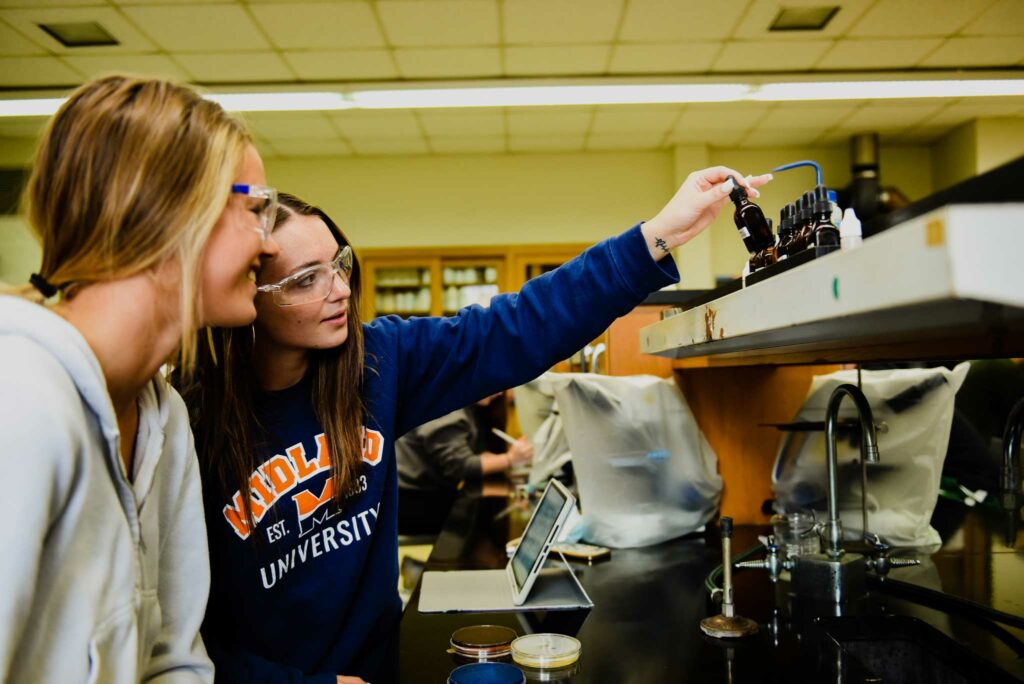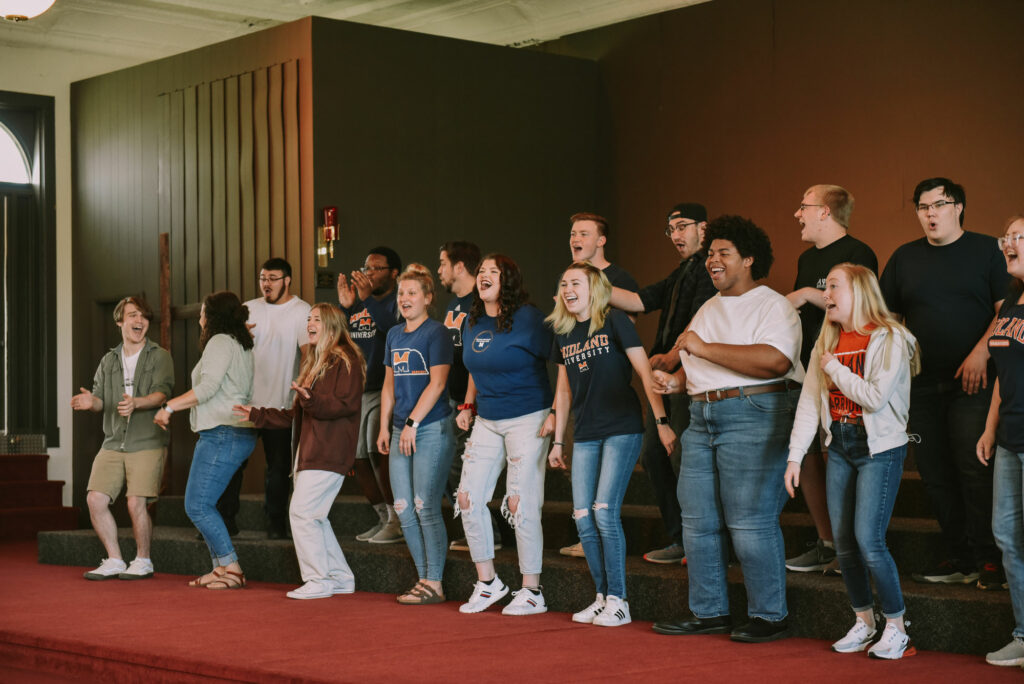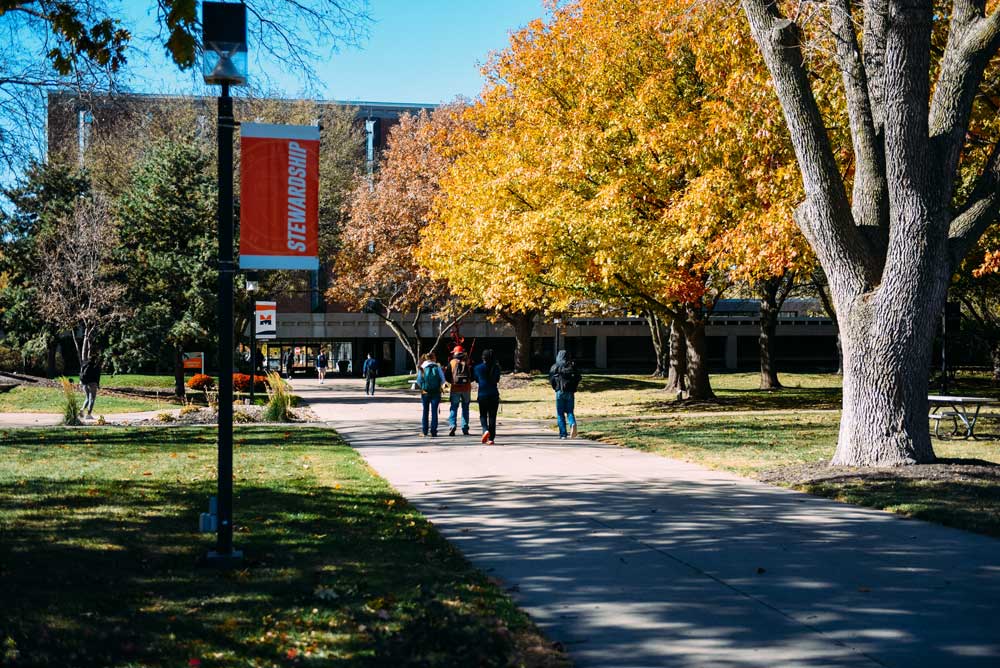About Midland University
Founded in 1883, Midland University offers relevant opportunities in more than 30 undergraduate academic areas, more than 20 graduate programs, and a wide range of professional studies programs at both our Fremont and Omaha locations.
Midland aspires for students to grow and learn in their academic careers, but the Midland experience goes beyond the classroom walls. Through participation in athletics, arts, and student organizations, students are building memories and relationships that will last a lifetime.
By working from the marketplace back, Midland University equips students at our Fremont campus, at our Omaha location, and online with the skills necessary to succeed in the world while providing them with dynamic and innovative learning experiences in their college journey.



Core Institutional Values
Midland University is a liberal arts college affiliated with the Evangelical Lutheran Church in America. We hold the following core values to be the foundation of our identity as a community.
- Faith – We believe as a college of the Lutheran tradition that faith and learning are inexorably linked. We believe that the exploration of faith and religion is an essential human endeavor.
- Quality – We believe in upholding exacting standards of quality and accountability. We believe in a learning experience where excellence in all things is valued and expected by all our constituents – our faculty, staff, students, alumni, trustees, and friends.
- Respect – We believe in the sanctity of the individual in a mutually supportive community of a small college. Therefore, we believe in a focus on each person as an individual with inherent worth.
- Stewardship – We believe we are called to educate morally and ethically responsible citizens of a pluralistic society. In this endeavor, we are guided by the ideas of service, integrity, and mutual respect.
- Learning – We believe that learning is best based on open inquiry and the liberal arts. We believe that an appreciation of the empirical, theoretical, and aesthetic forms of knowledge is critical to the development of citizens who can respond to an ever-changing world.
